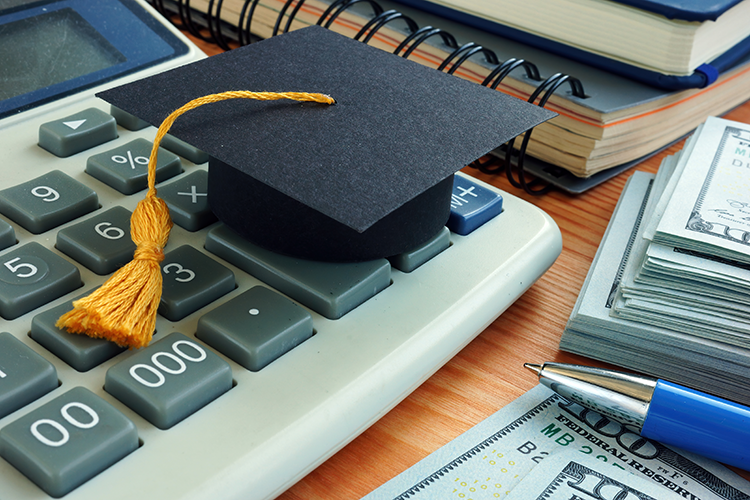Supreme Court strikes down student loan forgiveness; Roberts warns of 'disturbing' feature of some opinions

The HEROES Act allows waivers and modifications of student-aid programs during national emergencies. Image from Shutterstock.
The U.S. Supreme Court on Friday overturned the Biden administration’s student loan forgiveness plan, holding that it was not authorized by a law allowing modification of student-aid programs during national emergencies.
The Supreme Court ruled 6-3 in a lawsuit brought by six states. The high court’s conservative justices all joined the majority opinion by Chief Justice John Roberts.
The student loan cases concern President Joe Biden’s plan to cancel about $430 billion in student debt under a 2003 law known as the HEROES Act, which is shorthand for the Health and Economic Recovery Omnibus Emergency Solutions Act.
The law allows waivers and modifications of student-aid programs in connection with national emergencies. Biden has asserted that the COVID-19 pandemic was such an emergency.
Roberts said the text of the law did not give the U.S. Department of Education the authority to rewrite the Education Act “from the ground up.”
“The question here is not whether something should be done; it is who has the authority to do it,” Roberts said.
The power belongs to Congress, he said.
Roberts also used his opinion to warn about the possible impact of language in some opinions.
“It has become a disturbing feature of some recent opinions to criticize the decisions with which they disagree as going beyond the proper role of the judiciary,” Roberts wrote.
In the debt-relief case, the majority used “traditional tools of judicial decision-making,” Roberts said.
“Reasonable minds may disagree with our analysis—in fact, at least three do. We do not mistake this plainly heartfelt disagreement for disparagement. It is important that the public not be misled either. Any such misperception would be harmful to this institution and our country,” Roberts said.
Justice Elena Kagan dissented in the case, joined by Justices Sonia Sotomayor and Ketanji Brown Jackson.
“In every respect,” Kagan wrote, “the court today exceeds its proper, limited role in our nation’s governance.”
Congress’ grant of authority to the education secretary “may have been a good idea, or it may have been a bad idea. Either way, it was what Congress said,” Kagan wrote.
The Supreme Court considered two challenges. One was filed by six Republican-led states, and the other was filed by two people who say they are being unfairly excluded from the program or ineligible for the highest level of relief.
The Supreme Court ruled in the challenge by the states but dismissed the other for lack of standing.
The Supreme Court majority determined in the states’ case that at least Missouri had standing because the debt-relief plan affects the state’s Higher Education Loan Authority. That Missouri corporation owns over $1 billion in Federal Family Education Loans.
Biden’s program allowed debt forgiveness on up to $10,000 in federal student debt for people who make less than $125,000 per year as an individual or less than $250,000 per year in their household. Those who received Pell Grants would be eligible for up to $20,000 in debt relief.
The plan would have completely erased student debt for 20 million borrowers and lowered the median amount owed by another 23 million from $29,400 to $13,600.
ABA President Deborah Enix-Ross commented on the decision.
“The American Bar Association recognizes the burden that heavy student loan debts place on many borrowers. Today, in Biden v. Nebraska, the U.S. Supreme Court overturned efforts by President Joe Biden to relieve some of those burdens.
“Recent ABA surveys have found that student debt forces many borrowers to delay or forgo major life decisions, including marriage, having children and buying homes. The ABA supports programs that help borrowers who are experiencing financial hardship due to student loan obligations, including suspending or forgiving some of those loans.”
The two cases are Biden v. Nebraska and Department of Education v. Brown.
Hat tip to SCOTUSblog, which had coverage of the opinions.
See also:
ABAJournal.com: “Supreme Court will consider challenge to Biden’s student-debt relief program, puts case on fast track”



